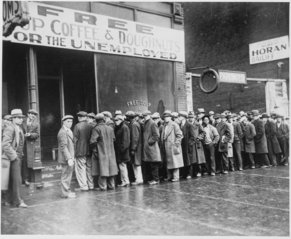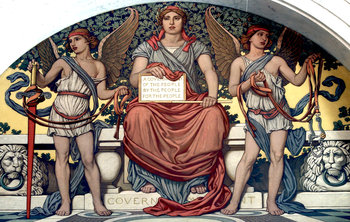Consumer Needs
Under consumer sovereignty, consumer needs are the primary driver of demand for goods. These needs include basic needs such as food and shelter and needs related to self-fulfillment, experience and social status such as books, vacations or luxury fashions. According to consumer sovereignty, there is no government role in telling people what is a "true need" and what is excessive consumption.Consumer Perceptions
Consumers buy goods based on their perceptions of things like quality and price. These perceptions are another basic driver of demand in a capitalist or social market economy. For example, if people perceive cotton socks as higher quality than polyester socks, these will receive high demand at the same price.Allocation of Resources
Consumer sovereignty causes producers to scramble to meet consumer needs and align to their perceptions. This is efficient as the capital of society is put to work producing goods that people want.Free Markets
Consumer sovereignty doesn't work if firms aren't also free to produce what they believe will meet consumer demand. As such, economic freedoms such as the right to start and operate a business without undue government interference are a basis for consumer sovereignty.Competition
Fair competition is a requirement for consumer sovereignty. For example, if a single firm dominates an industry that firm may start to dictate to consumers what they need such that the firm begins to resemble a communist state.Attention Economics
Attention economics is a market for advertising and promotion that is designed to attract consumer attention and to influence their perceptions.Conspicuous Consumption
Conspicuous consumption is consumption driven by a desire for social status such as respect, coolness or youth.Conspicuous Conservation
Conspicuous conservation is consumption or donations driven by a desire to be a good person or to be perceived as such.Commoditization of the Human Experience
Commoditization of the human experience is the tendency for consumers to seek products and services that fulfill their needs for experience in areas such as connectedness, respect, safety, adventure and self-fulfillment. For example, a consumer who seeks respect by purchasing a luxury handbag as opposed to earning respect through their behavior and accomplishments.Bounded Rationality
Bounded rationality is the theory that consumers are basically logical but often make irrational decisions due to a lack of information or time to invest in decision making.Consumer Protection
Due to bounded rationality, consumers benefit from a number of protections such as basic safety regulations for toys. Technically, these may limit consumer sovereignty but may have the effect of improving choices available to consumers as opposed to restricting them. For example, requiring harmful substances to be labeled on products may result in more products on the market that avoid these substances.Laws & Regulations
In practice, consumer sovereignty is always limited by laws and regulations designed to prevent economic bads such as destruction of the environment, harm to people or reduction of quality of life. For example, a consumer who wants a soup made from an endangered species may not be able to make this purchase due to basic laws that protect ecosystems.Notes
Sovereignty always has limits as the sovereignty of one person may interfere with the sovereignty of another. For example, one person wants to enjoy a beautiful beach and another wants to pave it to make a parking lot. Governments play a role in setting basic rules that prevent consumer sovereignty from becoming an overly destructive force.| Overview: Consumer Sovereignty | ||
Type | ||
Definition | The principle that people have the authority to make their own purchasing decisions. | |
Limits to Sovereignty | Monopolies and anti-competitive practices.RegulationsLaws | |
Related Concepts | ||































